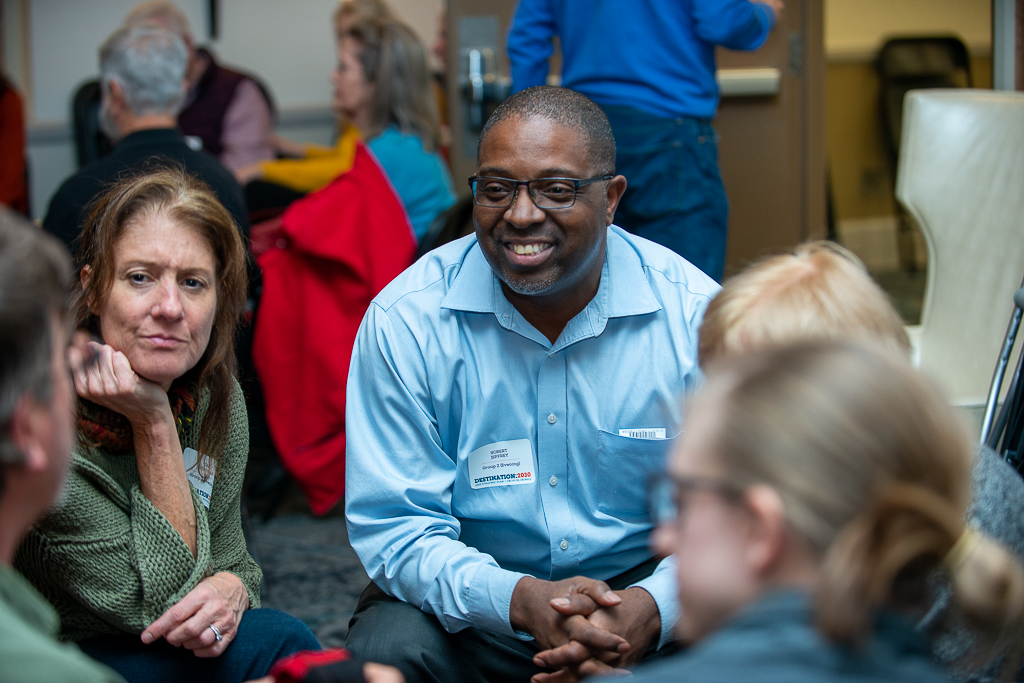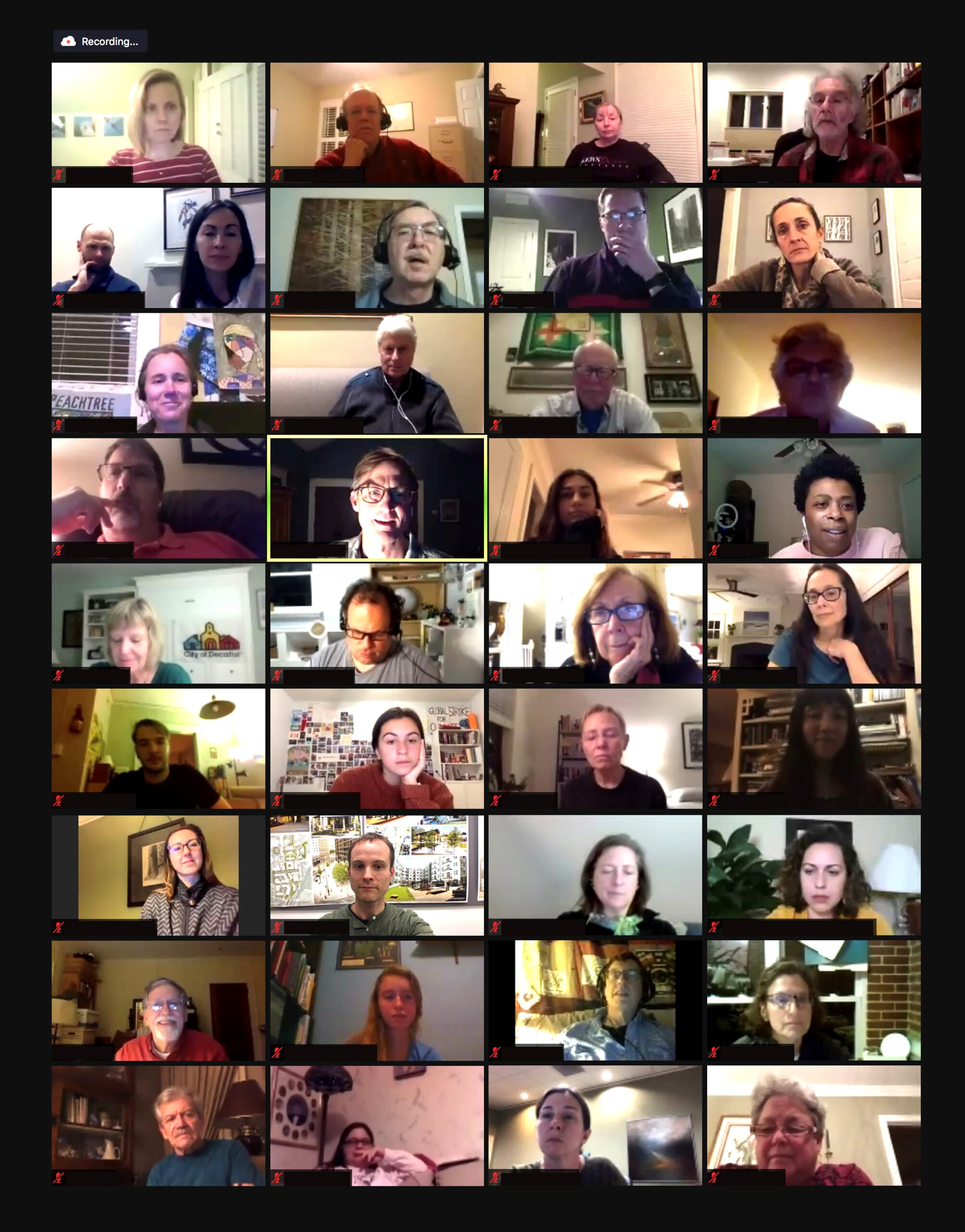The National Civic League is excited to announce that it will be inducting two communities into the All-America City Hall of Fame in 2021. The Hall of Fame Award recognizes outstanding civic engagement initiatives in communities that have previously won the All-America City Award.
Decatur, Georgia, a 2018 All-America City, is being recognized for Destination 2030 – A Community Driven Strategic Plan Process.
As Decatur began planning in 2019 for the 2020 strategic plan, they incorporated critical takeaways and community outreach recommendations from its 2015 Better Together Community Action Plan for Equity, Inclusion and Engagement, including ensuring all voices are heard and applying an equity lens across all areas. Decatur tapped into the expertise of residents, businesses, the project consultant team, and others through large and small conversations in a variety of forums. A Community Engagement Squad was created, including 100 people who committed to reaching out to their neighbors and other contacts to spread the word throughout the process.
 In January 2020, Destination 2030 was launched with a standing room only crowd of over 600 that included an interactive music and dance performance by Capoeria Maculele Decatur, one of the city’s immigrant-owned businesses. The event included a short video and welcome from elected officials and staff before attendees broke into groups of 8-10 to kick off the first of three Citizen Roundtables, small group discussions allowing neighbors to drill down on their ambitions and concerns. 800 registered to commit 8 hours of their own time, or 6400 citizen hours.
In January 2020, Destination 2030 was launched with a standing room only crowd of over 600 that included an interactive music and dance performance by Capoeria Maculele Decatur, one of the city’s immigrant-owned businesses. The event included a short video and welcome from elected officials and staff before attendees broke into groups of 8-10 to kick off the first of three Citizen Roundtables, small group discussions allowing neighbors to drill down on their ambitions and concerns. 800 registered to commit 8 hours of their own time, or 6400 citizen hours.

In each of the next three meetings, aided by volunteer facilitators, groups were set to explore alternative visions for Decatur’s future, progressively zeroing in on aspirations. The pandemic interrupted the planned roundtables. After receiving input, the remaining two roundtables were held using Zoom as the primary platform. Groups were also allowed to schedule independently to accommodate as many participant schedules as possible. By September’s end, 40 groups were able to convene their third and final discussion and submit notes.
The goal of the Roundtables process was to identify key areas of concern in which to base the next phase of community discussion. The groups’ conversations produced thousands of comments, which were sorted into topic areas that could be progressively refined and organized under six broad and interconnected categories:
- Housing and community inclusivity
- Climate change responses
- Racial equity
- Mobility
- Economic development
- Civic trust
Under each of the topic categories to be addressed in the strategic plan, roundtable participants had questions – and in some cases, strong opinions – about how to go about addressing issues. There was much consensus on what the plan must address but not on how to do so, thus setting the stage for a more focused community discussion.
To better understand and delve into these topics, the Decatur 202 sessions – a series of four focused, online discussions – were held between November 2020 and February 2021. Each combined an hour’s worth of presentation and panel discussion featuring a mix of national and local experts with breakout conversations in which participants could explore the issues in greater detail. The sessions sought to put a finer point on topics too big to fully tackle in the context of the roundtables, and to begin the process of reconciling conflicting opinions from participants.
online discussions – were held between November 2020 and February 2021. Each combined an hour’s worth of presentation and panel discussion featuring a mix of national and local experts with breakout conversations in which participants could explore the issues in greater detail. The sessions sought to put a finer point on topics too big to fully tackle in the context of the roundtables, and to begin the process of reconciling conflicting opinions from participants.
Four broad takeaways emerged. The four selected topic areas Mobility, Housing, Racial Equity, and Climate Change were affirmed as key categories for policymaking over the next decade and even when there was disagreement about the specific approaches, there was no hint of concerns that priorities could not be connected to one or more of these four topics. Participants realized strong connections among the categories and recognized that two or more of the topics are connected and that planning requires considering strategies through multiple lenses, especially affordability and racial equity. Participants approved of the city’s stated commitments and affirmed the ambition that Decatur should be seen as a leader on these topics, but the pressure is on to move faster and there are rising expectations that meaningful action is forthcoming.
In addition to the roundtables and the 202s, Strategic Plan Virtual Forums allowed those who live, work, worship, play or shop in Decatur to add to or comment on the topics raised during the roundtables, the 202s, or to put something new on the table.
The next phase includes the opportunity to consider how draft proposals might answer key questions such as: Are these strategies likely to get us where we want to go? Do they sufficiently reconcile differences of opinion about priorities? Do they require expansions of city capabilities, resources, and political will? And if so, is that realistic? Community members will be invited to weigh in on these questions as a preliminary draft comes together. The plan will be finalized by September 2021.



